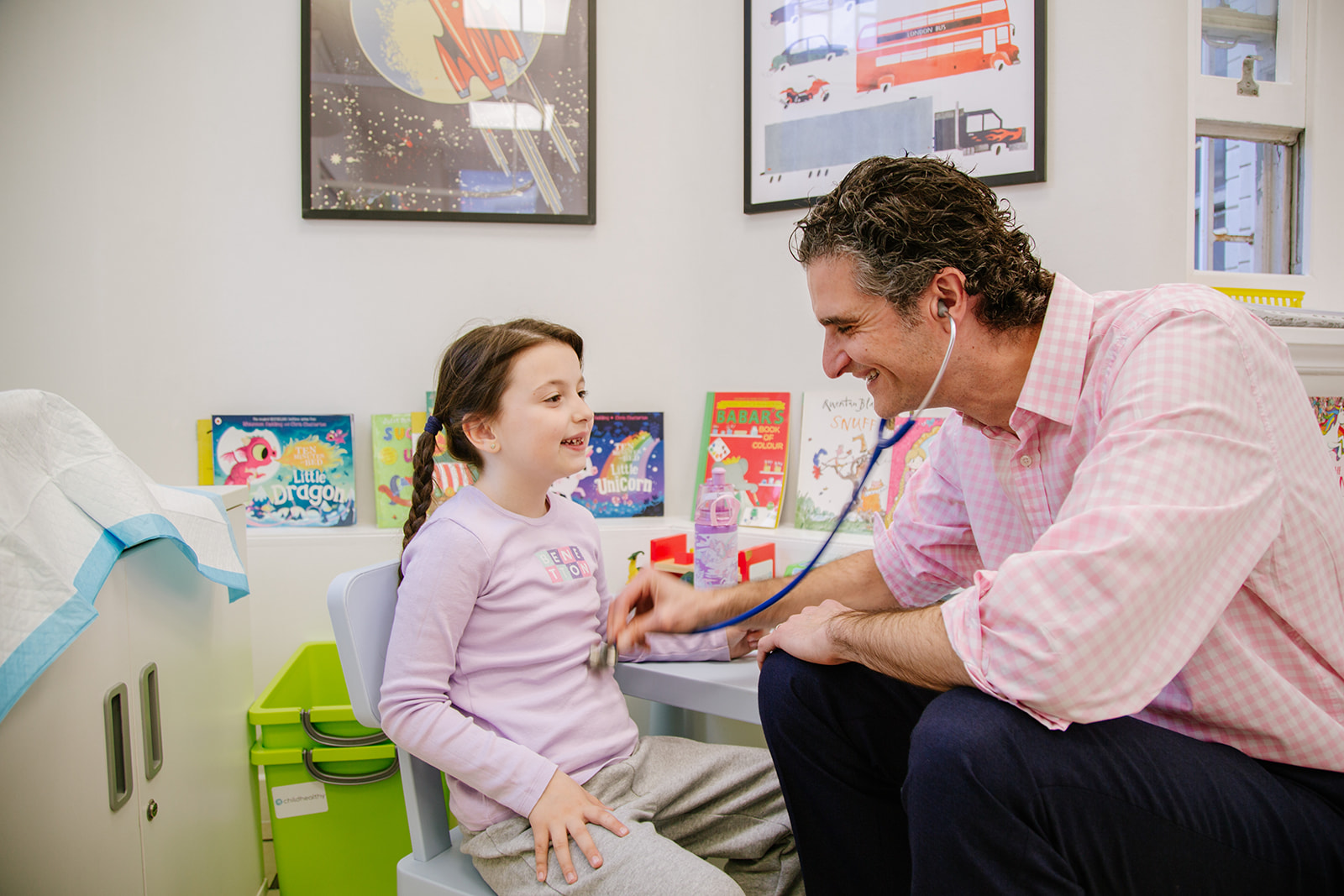Chest infections in children
Chest infections in children are common, especially during the colder months. They can range in severity.
While most cases are mild and improve with rest, some children may need medical treatment.
This page explains the different types of chest infections, the symptoms to look out for, and when to seek medical advice.

What is a chest infection?
A chest infection is an infection of the lungs or airways. It may be caused by a virus or bacteria. The two most common types of chest infections are:
- Bronchitis – infection of the airways (bronchi)
- Pneumonia – infection of the lung tissue
Viral chest infections are more common and usually get better on their own. Bacterial infections may need treatment with antibiotics.
Symptoms of a chest infection
Symptoms of a chest infection in children can include:
- Cough – may be dry or produce mucus
- Fever
- Breathing faster or with more effort than usual
- Wheezing or noisy breathing
- Tiredness or low energy
- Poor feeding or reduced appetite
- Chest or tummy pain, especially when coughing
- Sometimes vomiting after coughing
In younger children and babies, symptoms may be harder to spot. They may be more sleepy, irritable or feed less than usual.
When to seek medical advice
Contact your GP or seek medical help if your child:
- Has a high fever that does not settle
- Is breathing rapidly or struggling to breathe
- Is very drowsy, pale or irritable
- Refuses to feed or drink
- Has a cough that lasts more than 3 weeks
- Has chest pain
Always trust your instincts. If your child appears seriously unwell, seek urgent medical attention.
Treatment for chest infections
Treatment depends on the cause and severity of the infection. Mild viral chest infections usually improve with rest and care at home. You can support your child by:
- Offering small, frequent feeds or drinks
- Keeping them comfortable and allowing time to rest
- Using paracetamol or ibuprofen for fever or discomfort (check the correct dose)
- Using a humidifier or saline nasal drops to ease breathing if they are congested can be helpful particularly at night.
If the infection is bacterial, your child may be prescribed antibiotics.
Children with more serious infections may need hospital care for oxygen or fluids, especially if they are very young or have underlying health conditions.
Preventing chest infections
Not all chest infections can be prevented, but there are steps you can take to reduce your child’s risk:
- Ensure routine vaccinations are up to date
- Encourage regular handwashing
- Avoid exposure to cigarette smoke
- Keep your child away from others who are unwell, where possible
- Ensure good nutrition and plenty of rest during illness
If your child has frequent or severe chest infections, speak to your GP or paediatrician for further assessment. The team at Childhealthy are here to help and answer any questions.
Disclaimer: This article is intended for information only and should not be used as a substitute for medical care and advice. Always speak to a healthcare professional if you are concerned about your child’s health.
Related articles
Book your appointment
Clinic, remote appointments and home visits are available daily.
We can always find a time to suit you, so please do ask if you are having difficulty finding a suitable time.




